Health & Medicine
-
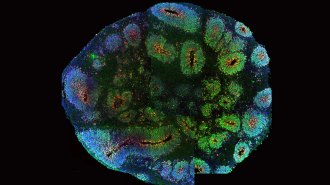 Neuroscience
NeuroscienceLab-grown organoids are more stressed-out than actual brain cells
Compared with real brain tissue, organoids show big differences.
-
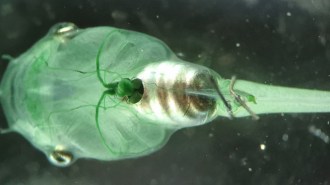 Health & Medicine
Health & MedicineAlgae inside blood vessels could act as oxygen factories
Two types of light-responsive algae make oxygen inside tadpoles’ blood vessels.
-
 Health & Medicine
Health & MedicineProzac proves no better than a placebo in treating kids with autism
In a small clinical trial, drugs called selective serotonin reuptake inhibitors didn’t ease obsessive-compulsive symptoms in children with autism.
-
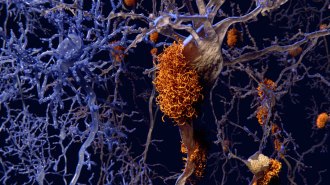 Neuroscience
NeuroscienceAlzheimer’s may scramble metabolism’s connection to sleep
Mice designed to have brain changes that mimic Alzheimer’s disease have altered reactions to blood sugar changes.
-
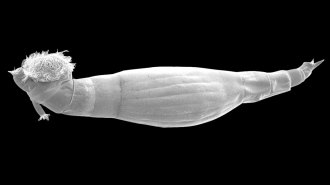 Health & Medicine
Health & MedicineThese tiny aquatic animals secrete a compound that may help fight snail fever
A newly identified molecule from rotifers paralyzes the larvae of worms that cause schistosomiasis, which affects over 200 million people worldwide.
By Sofie Bates -
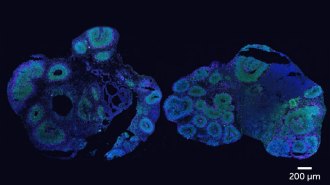 Neuroscience
NeuroscienceOrganoids offer clues to how brains are made in humans and chimpanzees
Three-dimensional clumps of brain cells offer clues about how brains get made in humans and chimpanzees.
-
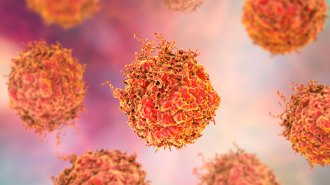 Health & Medicine
Health & MedicineA precision drug for prostate cancer may slow the disease’s spread
The drug olaparib could be used to treat men with certain genetic mutations and severe types of prostate cancer, a clinical trial finds.
By Sofie Bates -
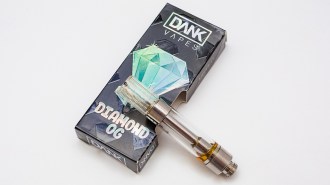 Health & Medicine
Health & MedicineNearly 1,300 injuries and 29 deaths in the U.S. have been tied to vaping
As the investigation continues, health officials expect multiple causes will be behind the ever-growing number of vaping-related lung injuries.
-
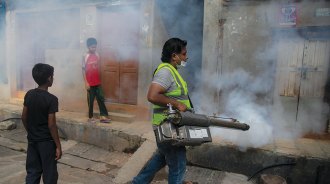 Humans
HumansNepal is reeling from an unprecedented dengue outbreak
As climate change opens new regions to mosquitoes, Nepal suffers an outbreak of the painful viral disease that has sickened more than 9,000 people.
-
 Health & Medicine
Health & MedicineDiscovery of how cells sense oxygen wins the 2019 medicine Nobel
Understanding the molecular switch that lets cells cope with oxygen has implications for everything from metabolism to wound healing.
-
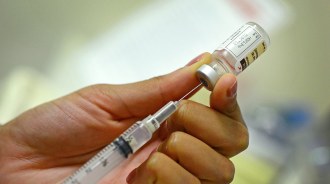 Health & Medicine
Health & MedicineThe U.S. narrowly eked out a measles win, keeping elimination status
The risk of measles, while low in the United States, still remains due to undervaccinated areas and international travelers importing the virus.
-
 Neuroscience
NeuroscienceDueling brain waves during sleep may decide whether rats remember or forget
In a slumbering rat, two distinct kinds of brain waves have opposite jobs.